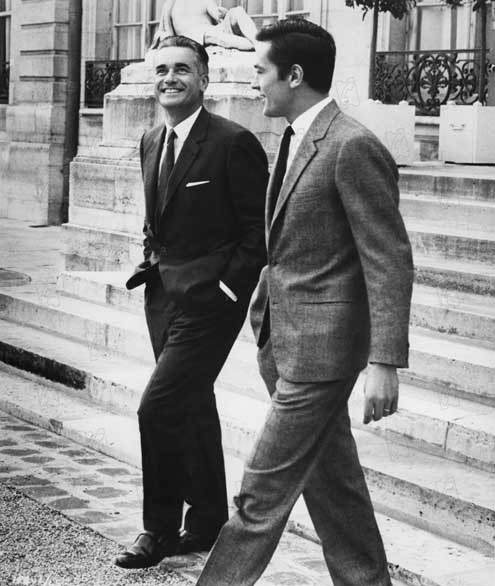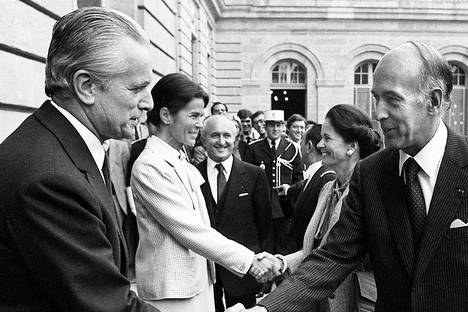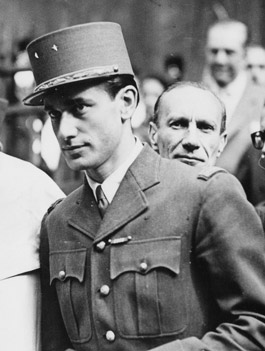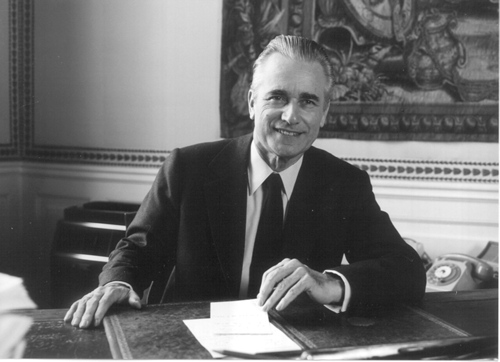<Back to Index>
- Botanist Luther Burbank, 1849
- Painter Boris Mikhaylovich Kustodiev, 1878
- Prime Minister of France Jacques Chaban - Delmas, 1915
PAGE SPONSOR
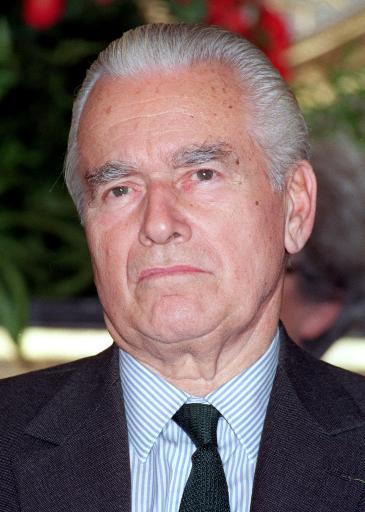
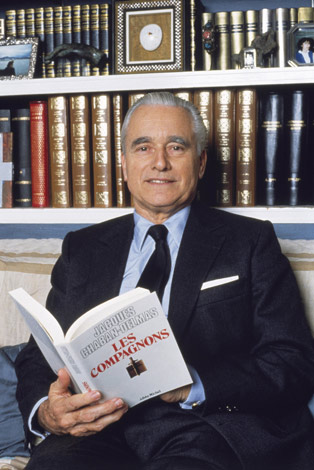
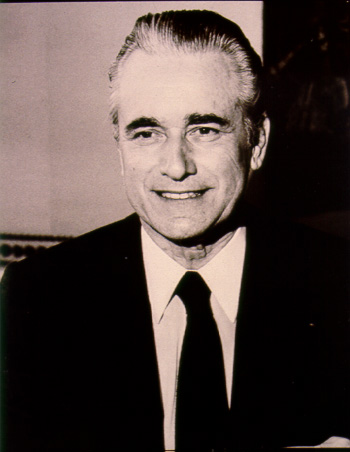
Jacques Chaban-Delmas (7 March 1915 in Paris – 10 November 2000 in Paris) was a French Gaullist politician. He served as Prime Minister under Georges Pompidou from 1969 to 1972. In addition, for almost half a century, he was Mayor of Bordeaux (1947 to 1995) and a deputy for the Gironde département.
Jacques Chaban - Delmas was born Jacques Delmas. In the resistance underground, his final nom de guerre was Chaban; after World War II, he formally changed his name to Chaban - Delmas. As a general of brigade in the resistance, he took part in the Parisian insurrection of August 1944. He was the youngest French general since the First Empire.
A member of the Radical Party, he finally joined the Gaullist Rally of the French People (RPF), which opposed the Fourth Republic's governments. In 1947, he became mayor of Bordeaux, which was for 48 years his electoral fief. As a member of the National Assembly, he sat with the RPF.
In 1953, when the RPF group split (and Charles de Gaulle supposedly retired), Chaban - Delmas became head of the Union of Republicans for Social Action and president of the National Centre of Social Republicans party. He "tied up" with centre - left parties and joined Pierre Mendès - France's cabinet one year later as Minister of Public Works. He took part in the centre left coalition Republican Front, which won the 1956 legislative election. More notably, he was Defence Minister in 1957 – 1958. His governmental participation during the Fourth Republic inspired the distrust of de Gaulle and some Gaullists.
Following Gen. de Gaulle's return to power in 1958, Chaban - Delmas agreed to the advent of the French Fifth Republic and the new Constitution. He took part in the foundation of the Union for the New Republic (UNR) and was elected, against de Gaulle's will, chairman of the National Assembly. He kept this function until the end of de Gaulle's presidency in 1969. Unlike some Gaullists, for instance, Jacques Soustelle, he supported de Gaulle's policy to end the Algerian War of Independence. During the 1959 UNR Congress, he was the first politician to evoke a "reserved presidential domain," composed chiefly of defence and diplomacy. This interpretation of the Constitution of 1958 has survived.
In 1969, when Georges Pompidou acceded to the presidency, he chose Chaban - Delmas, who had concluded that the May 68 crisis was the consequence of a strained and conflicted society, as prime minister. Chaban - Delmas tried to promote what he called "a new society", based on dialogue between the social forces. He relaxed the government authority over mass media. As a result, he was viewed as too "progressive" by the "conservative" wing of the Gaullist movement. He was suspected of wanting to "tie up" again with the centre - left. Indeed, his advisers who inspired the "new society" programme was considered as close to the centre - left (Simon Nora and Jacques Delors who would serve as Finance Minister under François Mitterrand). Besides, a latent conflict opposed Chaban - Delmas to President Pompidou and the presidential circle. They accused him to weaken the presidency in aid of himself. The satirical paper Le Canard Enchaîné accused him of breaking the law through tax evasion and in 1972, PM Chaban - Delmas canvassed for a vote of confidence in the Assembly. This he did obtain, but the President still managed to force his resignation.
Two years later, following the death in office of President Pompidou, Chaban - Delmas ran for the presidency himself. He was supported by the "lords of gaullism", but 43 personalities close to the now defunct president, led by Jacques Chirac, published the Call of the 43 in favour of the candidacy of Valéry Giscard d'Estaing. Chaban - Delmas was defeated on the first ballot of the 1974 presidential election, winning only 15.10% of the vote. Chirac became President Giscard d'Estaing's prime minister.
Chaban - Delmas stood in the Gaullist Party (RPR) and, in spite of Chirac's leadership, returned to the chair of the National Assembly (1978 – 1981). Due to his friendship with President Mitterrand, his name was mentioned as a possible prime minister during the first "cohabitation" (1986 – 1988), but he instead became president of the National Assembly for the third time and Chirac again became premier.
Chaban-Delmas retired in 1995, towards the end of his eighth term as Mayor of Bordeaux.
